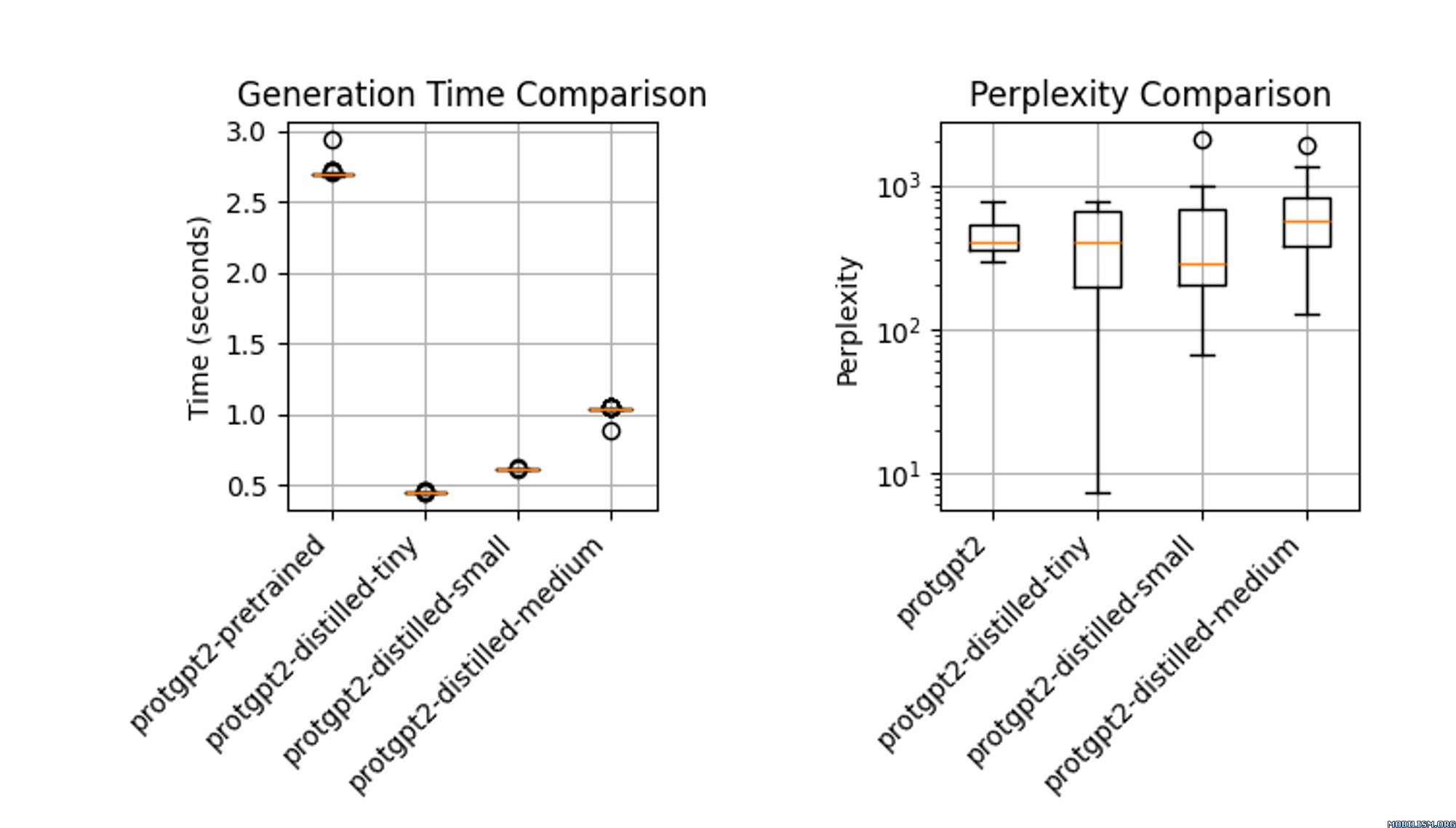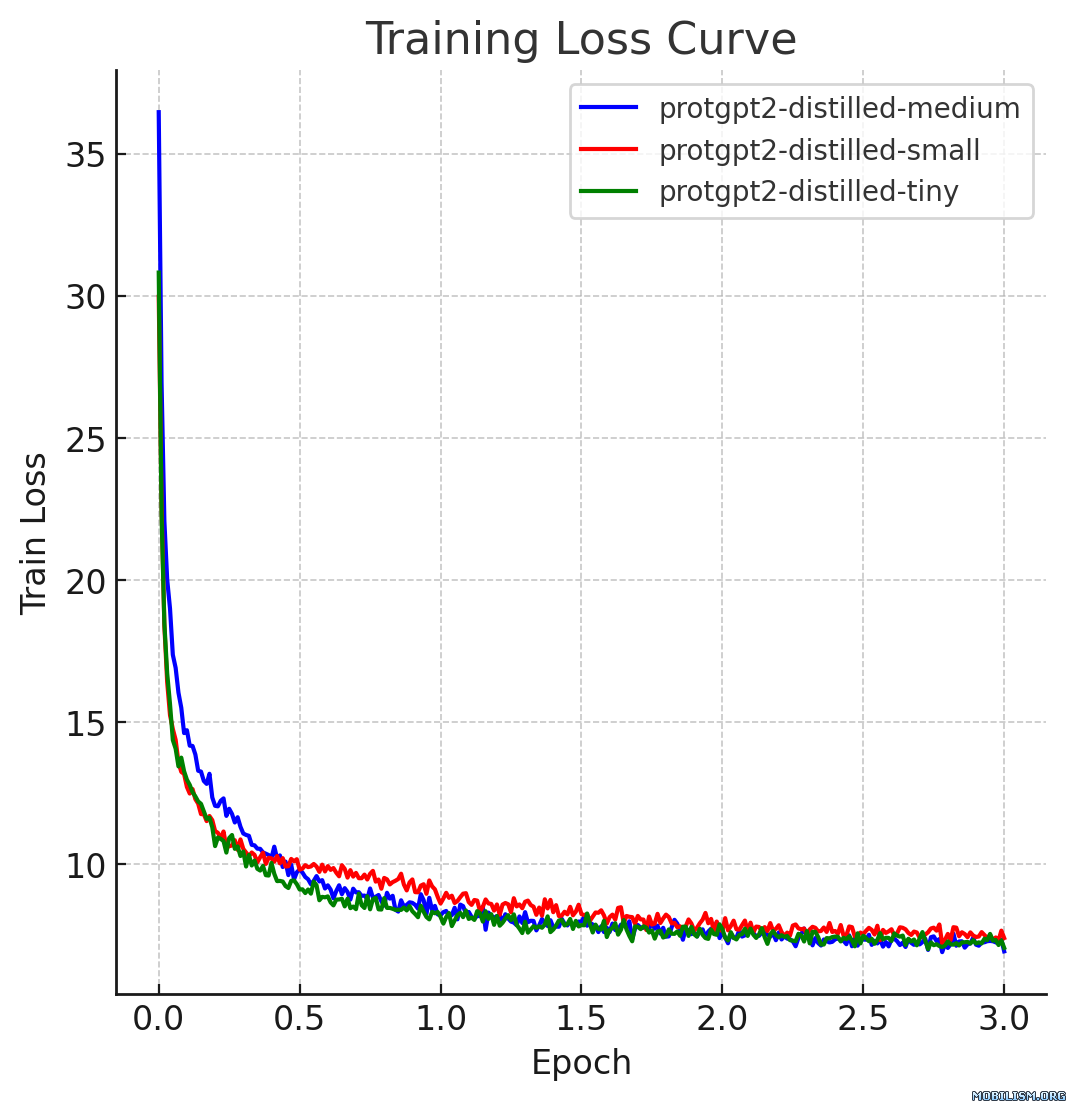Model Description
This model card describes the distilled version of ProtGPT2, referred to as protgpt2-distilled-tiny. The distillation process for this model follows the methodology of knowledge distillation from a larger teacher model to a smaller, more efficient student model. The process combines both "Soft Loss" (Knowledge Distillation Loss) and "Hard Loss" (Cross-Entropy Loss) to ensure the student model not only generalizes like its teacher but also retains practical prediction capabilities.
Technical Details
Distillation Parameters:
- Temperature (T): 10
- Alpha (α): 0.1
- Model Architecture:
- Number of Layers: 4
- Number of Attention Heads: 4
- Embedding Size: 512
Dataset Used:
- The model was distilled using a subset of the evaluation dataset provided by nferruz/UR50_2021_04.
Loss Formulation:
- Soft Loss: ℒsoft = KL(softmax(s/T), softmax(t/T)), where s are the logits from the student model, t are the logits from the teacher model, and T is the temperature used to soften the probabilities.
- Hard Loss: ℒhard = -∑i yi log(softmax(si)), where yi represents the true labels, and si are the logits from the student model corresponding to each label.
- Combined Loss: ℒ = α ℒhard + (1 - α) ℒsoft, where α (alpha) is the weight factor that balances the hard loss and soft loss.
Note: KL represents the Kullback-Leibler divergence, a measure used to quantify how one probability distribution diverges from a second, expected probability distribution.
Performance
The distilled model, protgpt2-distilled-tiny, demonstrates a substantial increase in inference speed—up to 6 times faster than the pretrained version. This assessment is based on evaluations using (n=100) tests, showing that while the speed is significantly enhanced, the model still maintains perplexities comparable to the original.
Usage
from transformers import GPT2Tokenizer, GPT2LMHeadModel, TextGenerationPipeline
import re
# Load the model and tokenizer
model_name = "littleworth/protgpt2-distilled-tiny"
tokenizer = GPT2Tokenizer.from_pretrained(model_name)
model = GPT2LMHeadModel.from_pretrained(model_name)
# Initialize the pipeline
text_generator = TextGenerationPipeline(
model=model, tokenizer=tokenizer, device=0
) # specify device if needed
# Generate sequences
generated_sequences = text_generator(
"<|endoftext|>",
max_length=100,
do_sample=True,
top_k=950,
repetition_penalty=1.2,
num_return_sequences=10,
pad_token_id=tokenizer.eos_token_id, # Set pad_token_id to eos_token_id
eos_token_id=0,
truncation=True,
)
def clean_sequence(text):
# Remove the "<|endoftext|>" token
text = text.replace("<|endoftext|>", "")
# Remove newline characters and non-alphabetical characters
text = "".join(char for char in text if char.isalpha())
return text
# Print the generated sequences
for i, seq in enumerate(generated_sequences):
cleaned_text = clean_sequence(seq["generated_text"])
print(f">Seq_{i}")
print(cleaned_text)
Use Cases
- High-Throughput Screening in Drug Discovery: The distilled ProtGPT2 facilitates rapid mutation screening in drug discovery by predicting protein variant stability efficiently. Its reduced size allows for swift fine-tuning on new datasets, enhancing the pace of target identification.
- Portable Diagnostics in Healthcare: Suitable for handheld devices, this model enables real-time protein analysis in remote clinical settings, providing immediate diagnostic results.
- Interactive Learning Tools in Academia: Integrated into educational software, the distilled model helps biology students simulate and understand protein dynamics without advanced computational resources.
References
- Hinton, G., Vinyals, O., & Dean, J. (2015). Distilling the Knowledge in a Neural Network. arXiv:1503.02531.
- Original ProtGPT2 Paper: Link to paper
- Downloads last month
- 274

